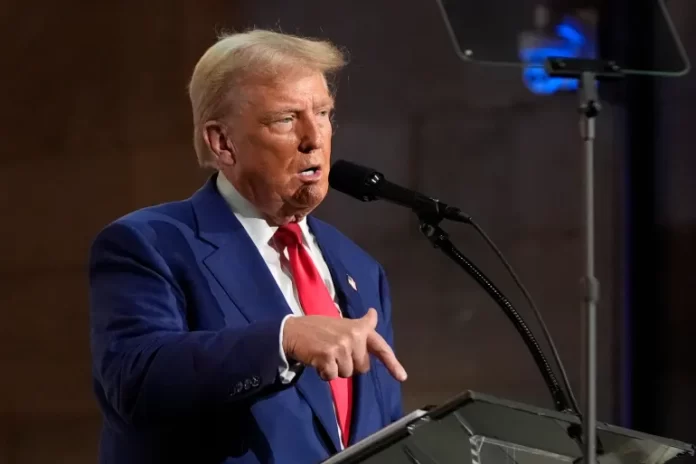The onset of the Trump administration in the United States has significantly altered global trade dynamics, economic outlooks, and geopolitical trajectories.
These shifts have far-reaching consequences for the Nigerian economy, with effects on energy prices, trade relations, economic diplomacy, macroeconomic stability, and capital flows.
Implications for Energy Prices
• The US has been the world’s largest oil producer for six years, and in 2023, it produced 21.91 million barrels per day, accounting for about 22% of global oil production. This gives the US considerable influence over global oil output and prices.
• The Trump administration has focused on increasing US oil production to lower energy costs domestically and globally, with the creation of the National Energy Dominance Council to support the energy dominance agenda. Additionally, Trump has sought to reduce geopolitical tensions, particularly the Russia-Ukraine conflict, which could lead to a global oil supply increase, especially if sanctions on Russia are lifted.
• If these strategies succeed, there is a high likelihood of falling oil prices, which would affect Nigeria’s oil-based revenue, especially given the $75 per barrel price set in the 2025 budget.
• Trump’s exit from the Paris Climate Accord could encourage more investment in fossil fuels, potentially reducing global oil demand and depressing oil prices. However, lower energy costs may benefit the Nigerian economy, particularly in deregulated sectors like oil and gas.
Implications for Global Trade
• Trump’s economic nationalism, protectionism, and policies of deglobalization have caused a series of retaliatory trade actions worldwide, affecting trade agreements like AGOA. While Nigeria has not fully capitalized on AGOA, the tariff war could create opportunities for Nigeria to export goods to the US, exploiting gaps in the supply chains.
• The trade war may lead to inflation in the US, with possible imported inflation affecting Nigeria’s imports. However, Nigerian businesses could take advantage of new export opportunities created by the disruption in supply chains.
• Additionally, the Trump administration’s stance on the BRICS nations and its push against the dollar’s dominance in global finance could lead to shifts in global economic alignments.
Implications for Remittances
• Immigration policies under Trump may affect Nigerian diaspora remittances, particularly given the estimated 500,000 Nigerians in the US, many of whom could face challenges with documentation and immigration regulations.
Implications for Government Revenue and Exchange Rate
• A potential drop in oil prices could negatively impact Nigeria’s revenue and foreign exchange earnings. With a likely strengthening of the US dollar due to Trump’s policies, Nigeria could see a weaker naira and higher import costs, which may contribute to inflation.
• Additionally, a high-interest-rate scenario in the US could trigger capital flow reversals, further destabilizing the naira exchange rate.
Suspension of USAID Programs
• USAID’s funding in Nigeria, valued at $1.02 billion in 2023, could face suspension under the Trump administration. This would affect key sectors like health, education, and governance, with significant financing gaps, particularly in health programs.
Policy Implications and Lessons
• Nigeria must focus on self-reliance and reduce dependence on imports, especially in critical sectors like energy, food, and pharmaceuticals. The lessons from global disruptions, like COVID-19, underscore the risks of overdependence on external resources.
• Economic policies should aim for resilience against external shocks, promoting domestic production, particularly in agriculture, energy, health, and security. Nigeria needs to further localize supply chains, ensure food and energy security, and address productivity challenges to remain competitive.
• Finally, protecting domestic industries from unfair competition, coupled with strengthening export development, should be central to Nigeria’s economic strategy moving forward.
Dr. Muda Yusuf, Director/CEO, Centre for the Promotion of Private Enterprise (CPPE).
